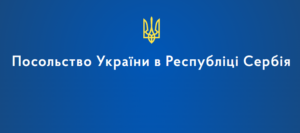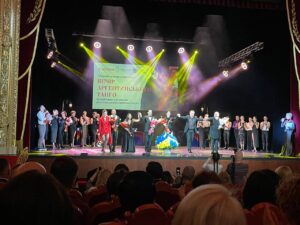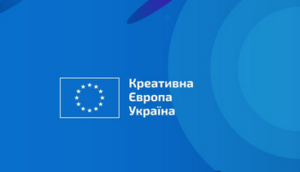
The Ukrainian children’s art festival “Veselka” was held in Novi Sad, Serbia, organized with the participation of the Ukrainian Embassy and the Ukrainian diaspora. The event became a platform for cultural unity and support for Ukrainian families living in Serbia.
The Veselka festival brought together children and families of Ukrainian origin from different cities in Serbia, offering them master classes, concerts, and interactive zones. The aim of the event was to preserve ties with Ukrainian roots, support the emotional well-being of migrant children, and strengthen the cultural infrastructure of the diaspora.
Exact data on the number of Ukrainian citizens and residents in Serbia varies. According to the Serbian Ministry of Internal Affairs, approximately 22,000 Ukrainian citizens have been registered in the country since the start of the war.
However, statistics on the number of Ukrainians living permanently or under temporary protection are not published regularly.

On October 25, 2024, the Kyiv National Academic Operetta Theater hosted the Argentine Tango Evening, a joint international project with the participation of Argentine and Ukrainian artists. The event was organized with the support of the Embassy of the Argentine Republic in Ukraine and brought together numerous fans of Argentine culture who had the opportunity to enjoy the skills of dancers, musicians, and singers.
“It is a great honor for me to be here today at the Kyiv Opera House, where we can present the richness of the Argentine tango and also show our cultural ties with Ukraine. This event is a testament to the cultural diplomacy that unites our peoples and promotes mutual understanding,” said Ambassador of Argentina to Ukraine Elena Leticia Teresa Mikusinski.
The Ambassador expressed her gratitude to Ukrainian partners, in particular to the General Director of the Kyiv Operetta Bohdan Strutynskyi, whose support was important for the realization of this project.
“Tonight was made possible by the hard work of teams from both countries. Their talent and dedication to tango culture is a valuable contribution to the development of our cooperation. This is not only an artistic event, but also a symbol of our partnership, which will continue in the future,” she added.
The Ambassador paid special attention to the performances of Argentine artists, including dancers Romina Garcia Fleury and Nicolas Correa from Tucumán, as well as the famous tango dancer Analia Celis.
“We are grateful to the Ukrainian people for the hospitality and support that our artists feel here in Kyiv, especially in such difficult times. Such cultural events are an example of the power of art to unite people,” said Jelena Mikusinski.

In conclusion, the Ambassador expressed her hope for further development of cultural ties between Argentina and Ukraine.
“This tango evening is just one of many steps towards a deeper cultural exchange between our countries. We are pleased that Ukraine remains open to Argentine culture,” she concluded.
Famous dancers and choreographers from the city of Tucumán – Nicolás Correa and Romina García Fleury, Argentine tango singer Analia Celis, as well as Ukrainian tenor Yuriy Godo and other artists – performed on stage.
Argentine tango is a unique cultural phenomenon that originated in the late nineteenth century in Buenos Aires and quickly gained popularity around the world. Tango is not only a music and dance style, but also a symbol of Argentine culture that reflects the passion, emotions, and drama of human relationships. This genre of dance and music combines the rich influence of African, Spanish and European rhythms, creating an atmosphere that captivates both the audience and the performers.
The Embassy of the Argentine Republic in Ukraine actively supports cultural exchange and promotes the development of bilateral relations between Ukraine and Argentina. Diplomatic relations between the two countries were established in 1992, when Argentina officially recognized Ukraine’s independence. Since then, the Embassy has been actively working to deepen cooperation in various fields, including culture, education, economy and science.
ARGENTINA, CULTURE, Elena Leticia Teresa Mikusinski, EMBASSY, UKRAINE, танго

The European Union’s Creative Europe program will continue to support Ukraine’s culture and creative industries sector in 2025, the Ministry of Culture and Strategic Communications reports.
“Ukrainian audiovisual projects have the opportunity to take full part in the competitions of the Media subprogram, which aims to support the European film and audiovisual industries and to develop, distribute and promote European works, taking into account the modern digital environment,” the ministry said in a statement.
It is noted that six such competitions have been announced, namely: European co-development; video game and immersive content development; television and online content; talent and skills development; 360° media; innovative tools and business models.
According to the announcement, grant applications can be submitted from October 1, 2024.
“The total amount of funding for projects that will receive grants under the above competitions is EUR 81.5 million. The total budget of the EU’s Creative Europe program in accordance with the Annual Work Program 2025 is EUR 340 million,” the agency added.

In the framework of international cooperation and cultural exchange, representatives of the Embassy of the Republic of Kazakhstan in Ukraine visited the Central State Historical Archive of Ukraine in Kyiv. The main purpose of the visit was the ceremony of handing over digital copies of the Kamianets-Podilskyi Armenian Voytov Court record books written in the Armenian-Kipchak language.
The ceremony was attended by counselors of the Embassy Alibek Alibekov, Yevgeniy Katrenov and Daniyar Satybaldin, director of the Central State Historical Archive of Ukraine Yaroslav Fayzulin, as well as archive staff and representatives of Kazakh business.
These unique historical documents are of great importance for the cultural heritage and history of both Ukraine and Kazakhstan. They testify to the rich cultural and historical ties between the peoples who lived on the territory of modern Ukraine and Kazakhstan.
The representatives expressed special gratitude to Kazakh businessman and philanthropist Aidyn Rakhimbayev, who made it possible to obtain these historical documents. Aidyn Rakhimbayev is known for his numerous charitable projects and support of cultural initiatives. In gratitude for his cooperation, five modern computers were donated to the Central State Historical Archive of Ukraine on behalf of Mr. Rakhimbayev.

This gesture contributes to strengthening bilateral relations between the two countries, as well as supports the preservation of historical heritage and the development of cultural ties.
Ancient Kipchak books are handwritten documents created in the Middle Ages, when the Kipchaks (Polovtsians) were one of the most powerful nomadic peoples in Eastern Europe and Central Asia. These books contain valuable historical, legal, and literary texts that reflect the social life, traditions, and legal systems of the time.
The Armenian-Kipchak language is considered to be a unique historical and linguistic phenomenon that arose as a result of the long coexistence of Armenian and Kipchak communities on the territory of modern Ukraine. This language was used by Armenians living in the Crimea, Kamianets-Podilskyi, and other cities where the Kipchaks had significant influence. The Armenian-Kipchak language is a mixed language that combines elements of the Kipchak (Polovtsian) and Armenian languages, making it a unique cultural heritage.
The Kamianets-Podilskyi Armenian Voytiv Court was a judicial institution that operated in Kamianets-Podilskyi during the Middle Ages. It resolved legal issues of the local Armenian community. The record books of this court are valuable sources on the history of law, ethnography, and social life of the society of that time. These books have been stored in the archive for centuries and have now become available thanks to their digitization.

Kazakhstan has now received digital copies of unique ancient Kipchak books, which are now available for study and research, enriching the historical heritage of both countries.
On July 22, 1992, the Republic of Kazakhstan and Ukraine established diplomatic relations. And in December 1994, the Embassy of the Republic of Kazakhstan in Ukraine was opened.

The support package of EUR 190 million provided by the European Union to Ukraine covers support for the culture and creative sector of Ukraine as well, Head of the EU Delegation to Ukraine Matti Maasikas has said.
At the Creative Ukraine forum in Kyiv on Thursday, Maasikas said the EU has shown solidarity with Ukraine in the face of the pandemic crisis by quickly mobilizing EUR 190 million support package covering the health crisis and social and economic relief, in particular for small and medium-sized enterprises, which also covers the creative sector, vulnerable groups and civil society.
The head of the EU Delegation also said that culture and creativity will remain an important part of the EU and Ukrainian cooperation, both the sector itself and views and values that the EU shares with the Ukrainian people.

Verkhovna Rada has passed at first reading the President’s draft law on reducing value added tax (VAT) to 7% for representatives of culture, tourism, creative industries.
An Interfax-Ukraine correspondent has reported that some 273 MPs voted in favor of bill No. 3851 on amending the Tax Code of Ukraine to support culture, tourism and creative industries at first reading at the meeting on Tuesday, September 15.
“Since our field of work mainly requires offline performance and it is extremely difficult to shift to online mode, therefore we believe that… theatre, opera, ballet, music, concert, other performances, … production of … films and so on may be charged 7% VAT,” noted the Minister of Culture and Information Policy of Ukraine Oleksandr Tkachenko at the presentation of the law.
He added that the bill provides for 7% VAT for operations related to temporary accommodation services provided by hotels, in view of the extremely high losses that this sector suffered due to quarantine measures.
“This law had been the subject of lengthy debates in the relevant ministries and I ask you now to lend a hand to the field of culture and creative industries,” Tkachenko summed up.